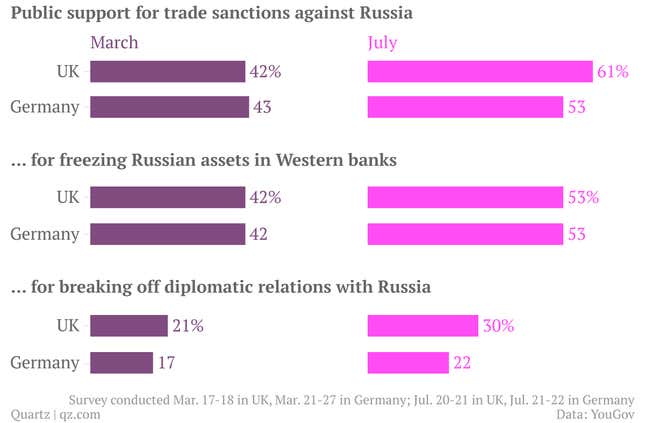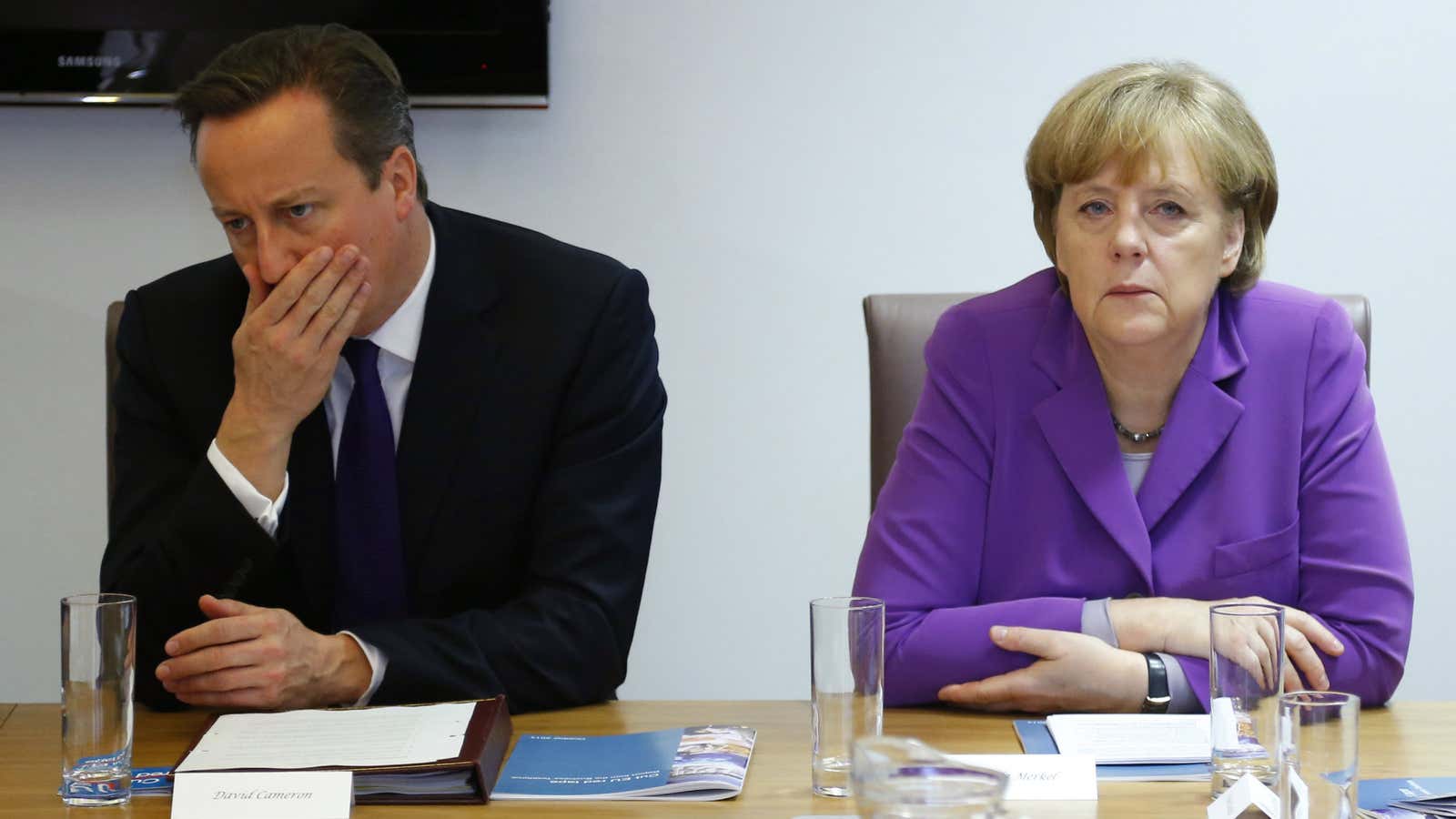Following the usual script, EU officials yesterday threatened harsher sanctions against Russia but put off substantial action to a later date. In other words, the hawks—including Poland and the UK—could not convince the doves—including France and Italy—to stiffen the penalties against Russia for its perceived role in sowing unrest in eastern Ukraine. At least not yet.
In these talks, Germany sits somewhere in the middle, perhaps leaning towards the doves. But as we have noted before, chancellor Angela Merkel has been steadily taking a tougher line with the Kremlin. A new survey by pollster YouGov may give her more cause to back broader sanctions against Russia. After the downing of a Malaysia Airlines plane in eastern Ukraine, more than half of Germans polled now support trade sanctions against Russia. This is a big jump from a similar survey in March, just after Russia’s annexation of Crimea:

Support for sanctions rose even more in the UK over the same period, which will encourage prime minister David Cameron to keep up the tough talk against Russia, including picking fights with allies he deems less committed to the cause. But the British public is less keen on freezing financial assets than imposing trade embargoes, perhaps reflecting how much Russian cash currently flows through London’s financial center.
Despite their hardening views on economic ties, neither Brits nor Germans are ready to switch the carrot for the stick just yet when it comes to diplomacy. Only around a third of Brits and a fifth of Germans think that their countries should break off diplomatic relations with Russia. Although this has risen since the Malaysia Airlines crash, it seems that people want their leaders to keep working with their counterparts in the Kremlin.
Indeed, Angela Merkel has spoken with Russian president Vladimir Putin roughly twice a week since the beginning of June. But if public opinion at home pushes her to support stricter sanctions against Russia—which means that the rest of the EU will inevitably follow—Putin won’t like what he hears the next time he picks up the phone.
